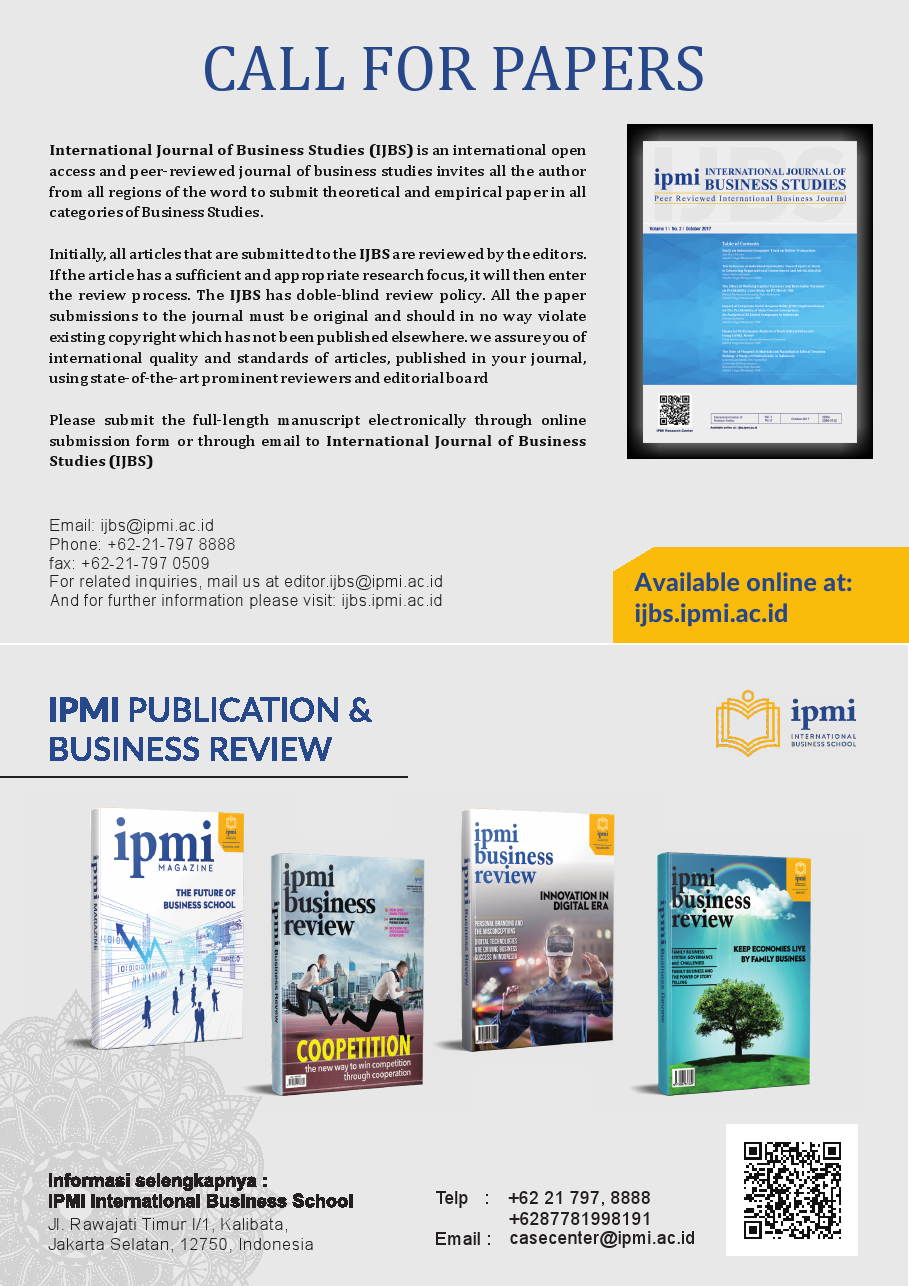Teleworking During Pandemic Covid-19 in Indonesia, and The Impact of Flexible Working Hours
DOI:
https://doi.org/10.32924/ijbs.v6i2.234Keywords:
Teleworking, Flexible working hour, Organizational resource, Technological resource, Human resource, Covid-19Abstract
This study aims to determine factors and analyze company's readiness to adopt teleworking proper to the Covid-19 situation. Working is significant during a pandemic so that companies can keep running, fulfill employee rights and have an impact on other benefits such as being able to reorganize economic conditions, traffic and the situation in congested cities. Therefore, it’s significant to recognize what helps a company's work transition to be successful. A pandemic situation is a natural challenge that enables individuals and organizations to increase their aptitude to adjust to unpredictable environmental changes quickly. This research is based on a observe establish in December 2020 through the lockdown period in several regions in Indonesia so that data collection is carried out online. Final sample consisted of 95 observations. Using path analysis, by modeling the conditions of the Covid-19 pandemic as a mediator of organization, technology and human resources in influencing teleworking adoption. Teleworking is also modeled with the resulting effect, namely flexible working hours. The results show that the Covid-19 pandemic situation can moderate the influence of organizations and human resources on teleworking adoption and also that teleworking adoption affects flexible working hours. by modeling the conditions of the Covid-19 pandemic as a mediator of organization, technology and human resources in influencing teleworking adoption. Teleworking is also modeled with the resulting effect, namely flexible working hours. The pandemic situation may moderate the influence of organizations and human resources on teleworking adoption and also that teleworking adoption affects flexible working hours.
Downloads
Submitted
Accepted
Published
How to Cite
Issue
Section
License

International Journal of Business Studies by Sekolah Tinggi Manajemen IPMI is licensed under a Creative Commons Attribution-ShareAlike 4.0 International License.
Authors who publish with this journal agree to the following terms:
1. Copyright Transfer Agreement Form can be downloaded HERE.
2. Authors retain copyright and grant the journal right of first publication with the work simultaneously licensed under a CC BY-SA Creative Commons Attribution-ShareAlike 4.0 International License that allows others to share the work with an acknowledgement of the work's authorship and initial publication in this journal.
3. Authors are able to enter into separate, additional contractual arrangements for the non-exclusive distribution of the journal's published version of the work (e.g., post it to an institutional repository or publish it in a book), with an acknowledgement of its initial publication in this journal.
4. Authors are permitted and encouraged to post their work online (e.g., in institutional repositories or on their website) prior to and during the submission process, as it can lead to productive exchanges, as well as earlier and greater citation of published work.















